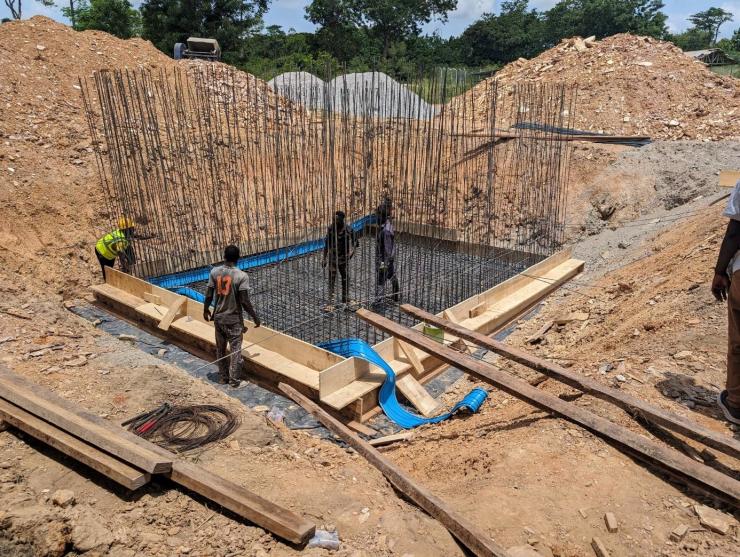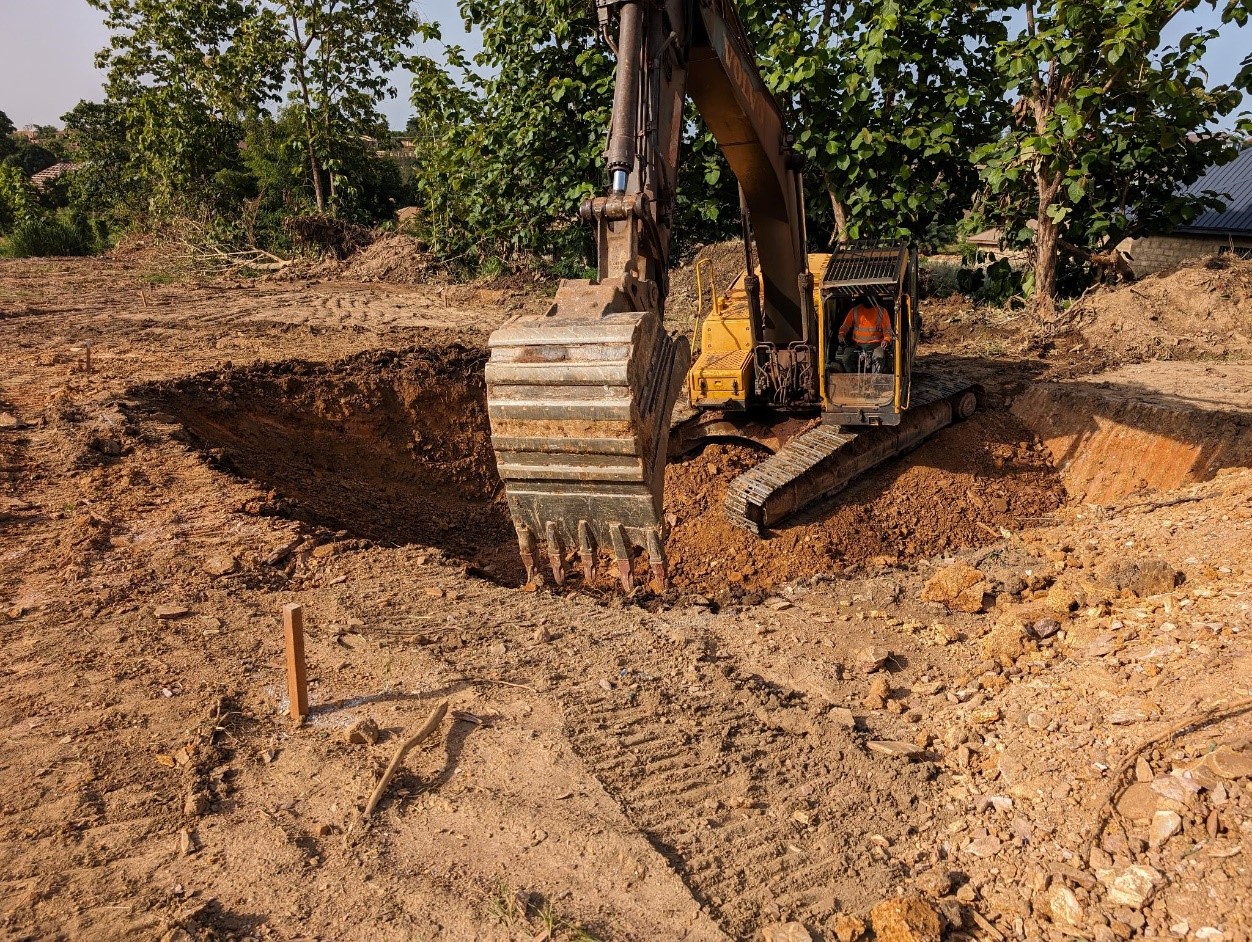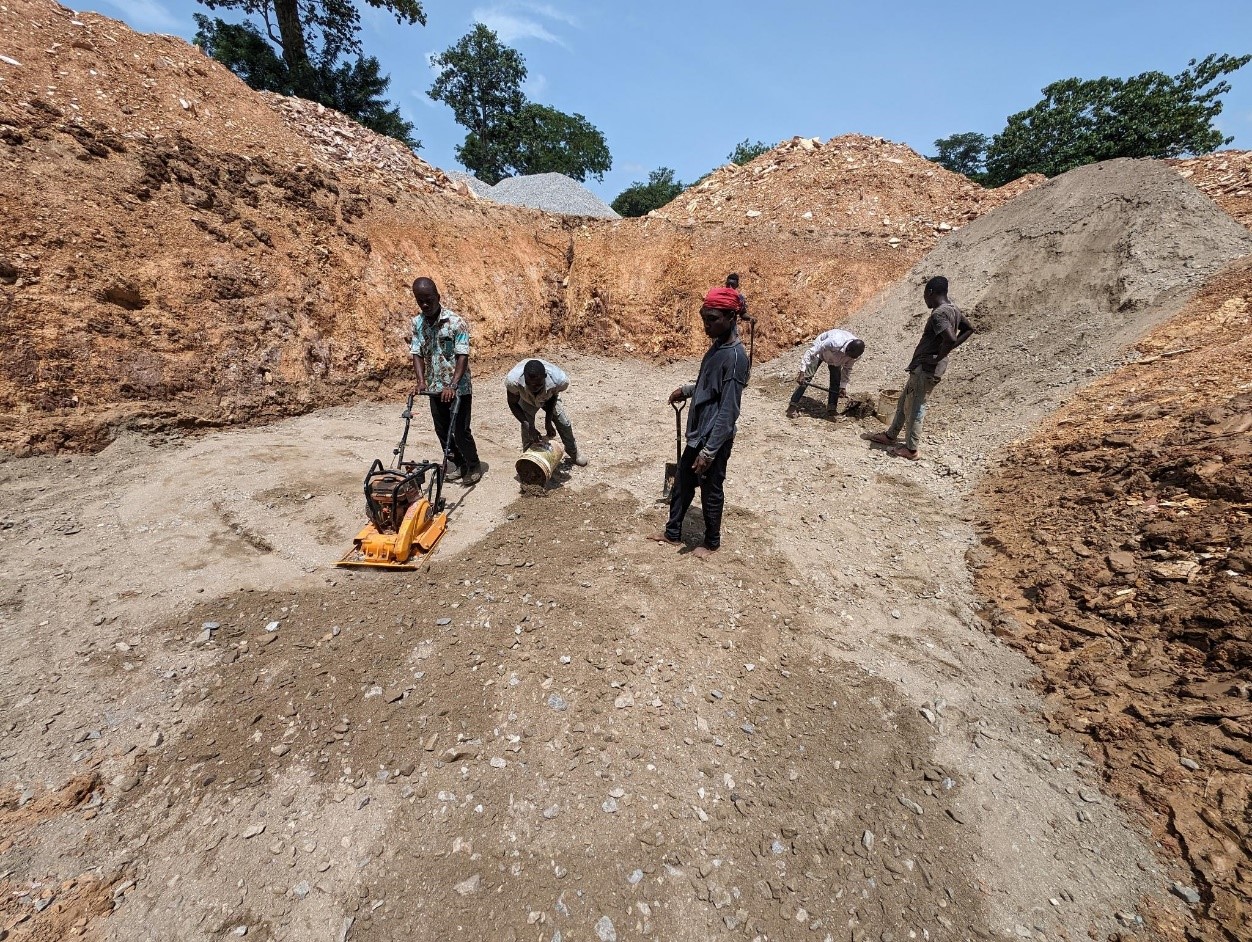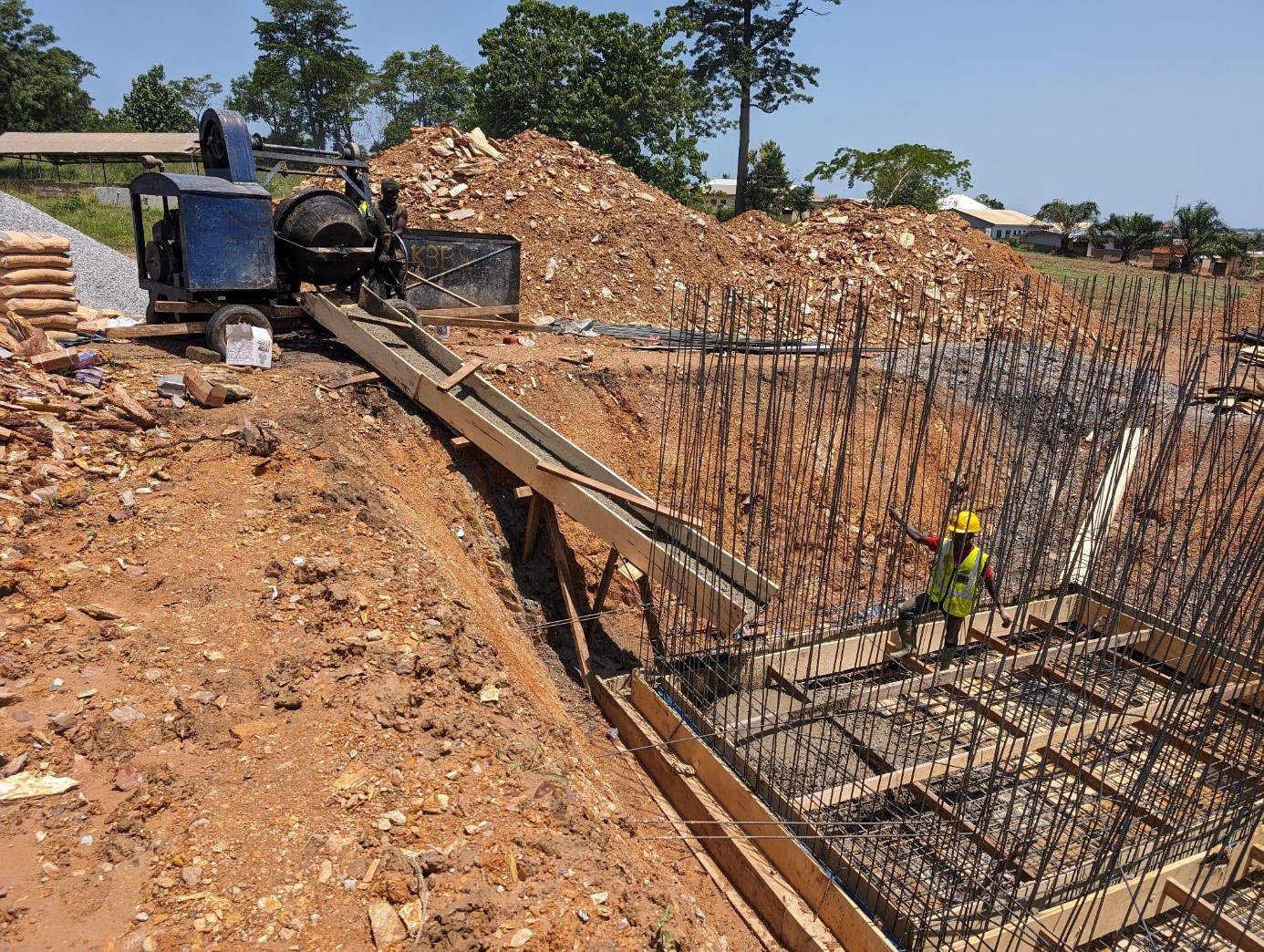

Level-Up: construction start for bioenergy park
The Bioenergy Park is designed to process various organic residues through different processing chains: An innovative wet fermentation biogas system converts market and cafeteria waste into cooking gas for the University of Energy and Natural Resources (UENR) cafeteria. The by-products of this process are composted and used as fertilizer. Another part of the facility processes residual woods into wood chips, which are then dried to the desired moisture content using a solar drying system. Subsequently, the wood chips are burned in a biomass gasification unit. The resulting wood gas is then converted into electricity in a combined heat and power plant. The waste heat of the process is used in an absorption refrigeration unit to operate a cold storage facility.

"We are immensely grateful for the persistent commitment of our partners and other supporters who, despite numerous organizational and financial challenges over the past months, have enabled us to reach this important milestone. We sincerely thank all the parties involved. Their relentless dedication has made this success possible", states Prof. Dr Stefan Pelz, who is leading the project alongside Prof. Dr Steffen Abele and Prof. Dr Nana Derkyi. Prof. Pelz adds, "The fruits of our intensive efforts over the past years are finally becoming visible. We eagerly anticipate the arrival of the containers that will mark the beginning of the initial operational phase. We are particularly excited about the upcoming reunion and the exciting research work with our colleagues in Ghana, which can now officially commence!"

Dr Thomas Helle (Novis) comments, "With the research biogas facility in Ghana, we were able to transfer the findings of another research project funded by the government of Baden-Württemberg directly to West Africa. This represents practical and applied ecological research transfer."
Future steps for the project include preparing for upcoming deliveries to Sunyani (Ghana), the construction of the biogas fermenters, and building further technical units. A new control and visitor centre will inform the public about the project’s progress. Despite ongoing economic challenges in Ghana, UENR is fully financing the construction projects. "The fact that UENR is undertaking these investments is far from given, especially since the project was applied for before the COVID-19 pandemic and the financial commitments were made before its global financial impact," emphasizes Prof. Dr Steffen Abele. This resilience highlights UENR's extraordinary commitment and dedication to advancing the project.

For further information on Level-Up, visit the project page.
